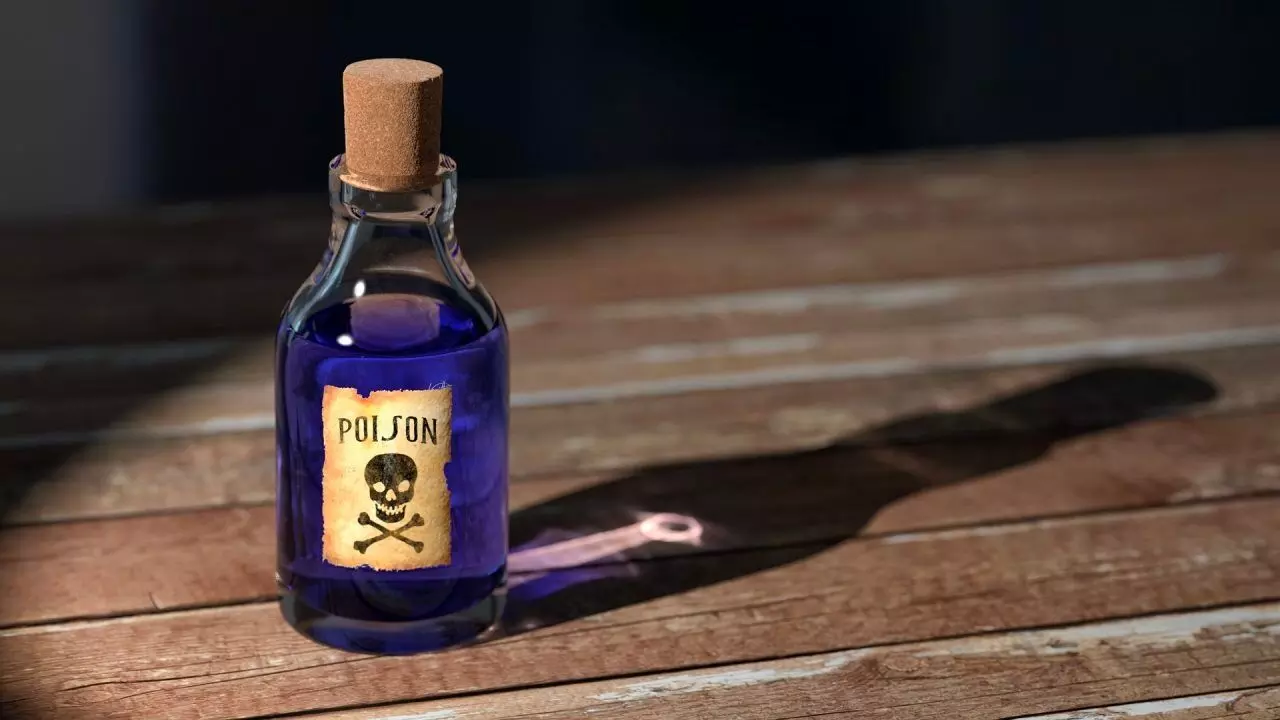Toxicon 2022- Doctors raise awareness about poisons & suicides
The doctors at KIMS treat at least 5-10 poison care patients on an average every month.
By Amrutha Kosuru
Hyderabad: Ingestion of poison and substance abuse are the most common modes of suicide in the country. According to the National Crime Record Bureau (NCRB), 25% of those who die by suicide use poison. To create awareness and spread knowledge regarding various poisoning methods and their subsequent antidotes, the Krishna Institute of Medical Science (KIMS) apprised general physicians of the challenges faced in emergency handling of these cases.
Several resident doctors and medical students attended Toxicon 2022. The basic principles of toxicology and various ways to identify a poison in one's body were discussed at the event.
The doctors at KIMS treat at least 5-10 poison care patients on an average every month.
Organophosphate Poisoning
The people most at risk of organophosphate poisoning (OP poisoning) are those who live or work on or near farms. One can also get organophosphate poisoning by consuming contaminated food or water. The most common unintentional exposure routes are through breathing and contact with the skin.
The severity of organophosphate, which is self-poisoning, is a major public health problem in rural areas. Dr. K. Shivaraju of KIMS hospital explained that agitation, narrow pupils, and respiratory issues are some of the common signs of OP poisoning. He also noted that poisoning is most common in teens and adults.
"There are three grading levels of OP poisoning – mild, moderate, and severe. Depending on the intensity, suitable enzymes are given to stabilise the body. The most important task for doctors is to decontaminate the body to prevent further spread of the poison and stabilise breathing," he added.
Around 20% of OP poisoning cases require to be in ICU. These cases are usually those who ingest an OP compound for suicidal purposes. "Hundreds of OP compounds are freely available in the Indian market in the form of pesticides. This should be avoided," said Dr. Shivaraju.
Toxidrome
Dr. Pankaj Kumta spoke about toxidromes or clinical fingerprints. "Toxidrome is often a consequence of past drug overdoses. An infection may also lead to a toxidrome that is usually caused by toxin levels within the body," he said.
In addition to various poisons, applications of their antidotes, the role of blood-based therapies in poisoning and Extracorporeal Membrane Oxygenation (ECMO) were also discussed.
Paraquat poisoning
Paraquat is a fast-acting compound that is essentially a pesticide. It is green in color and has a pungent smell. It is a common suicidal agent in Asia with a fatal rate of over 70%.
Dr. Prathiba Lakshmi from Osmania General Hospital said the severity depends directly on the amount of poison consumed. "In an adult human, the estimated lethal dose is about 30 mg/kg which is equivalent to 10 to 20 ml of 20% solution," she said.
Paraquat leads to multi-organ failure, cardiac arrest, and much more.
"While there is no specific antidote for paraquat poisoning, various studies have shown that the poison is rapidly deactivated when it comes into contact with soil. Multani mitti, in particular, has strong properties that deactivate paraquat," Dr. Prathiba said.
She said the patient's airway must be immediately secured and gastric lavage should be done in an hour.
She explained that Paraquat poisons are available easily as pesticides. "It's not just paraquat but several other poisons too. This needs to change. We need to curb the availability of poisons that are available as pesticides and more. Only then will there be fewer poison cases in the country," she added.
In all poison cases, whether the patient has taken it for suicidal purposes or been exposed to it by mistake, doctors insist that they receive mental health care. "It's highly liable that the patients are depressed and suicidal. Hence, mental health care is recorded," Dr. Prathiba said.
The golden hours
Dr. V. Jagadish Kumar of KIMS said the first six hours after toxins are consumed, intentionally or accidentally, are crucial and are called the 'golden hours'. "Usually, in case of poisoning, we rush someone to a nearby hospital, but most of us have no idea about what type of poisonous substance was actually taken, the kind of treatment to be given, and whether that treatment is available in the hospital," he said.
"Emphasising the variety of drugs, poisons, and venomous bites we come across and rapid administration of specific antidotes and following approved guidelines with evidence-based practice is the core content of Toxicon," said Dr. Jagadish.